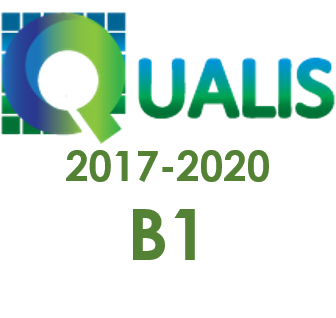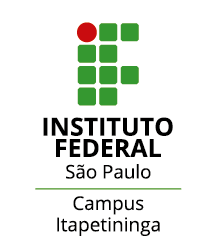Relações no ensino médio entre crenças científicas e disposições de pensamento crítico, nível acadêmico e gênero
Palavras-chave:
Creencias sobre ciencia, Pensamiento crítico, . Nivel académico, Enseñanza secundaria, GéneroResumo
O objetivo deste estudo foi investigar a possível influência da disposição para o pensamento crítico, o nível de educação acadêmica e gênero (variáveis independentes) sobre o nível de qualidade das crenças científicas dos estudantes do ensino médio (variável dependente). Um total de 141 alunos do ensino médio espanhol, 75 meninos e 66 meninas da 8ª, 9ª e da 11ª séries, participaram. Todos eles foram administrados dois questionários, um de crenças sobre a ciência e outro de disposição para o pensamento crítico. Da matriz de correlação produto-momento de Pearson entre as variáveis e a análise regressiva passo-a-passo realizada, foram tiradas as seguintes conclusões: 1) a formação acadêmica recebida e o gênero parecem ter um peso insignificante nas crenças sobre ciência; e 2) a disposição para o pensamento crítico (ou seja, o uso potencial das habilidades de pensamento crítico) mostra uma contribuição significativa para essas crenças.
Downloads
Referências
Alabau, J., Solaz-Portolés, J. J., & Sanjosé, V. (2020). Relación entre creencias sobre resolución de problemas, creencias epistemológicas, nivel académico, sexo y desempeño en resolución de problemas: un estudio en educación secundaria. Revista Eureka sobre Enseñanza y Divulgación de las Ciencias, 17(1), 1102-1102. https://doi.org/10.25267/Rev_Eureka_ensen_divulg_cienc.2020.v17.i1.1102
Bailin, S. (2002). Critical thinking and science education. Science & Education, 11(4), 361-375. https://doi.org/10.1023/A:1016042608621
Butler, H. A. (2012). Halpern Critical Thinking Assessment predicts real‐world outcomes of critical thinking. Applied Cognitive Psychology, 26(5), 721-729. https://doi.org/10.1002/acp.2851
Cobern, W. W., & Loving, C. C. (2002). Investigation of preservice elementary teachers' thinking about science. Journal of Research in Science Teaching, 39(10), 1016-1031. https://doi.org/10.1002/tea.10052
Conley, A. M., Pintrich, P. R., Vekiri, I., & Harrison, D. (2004). Changes in epistemological beliefs in elementary science students. Contemporary Educational Psychology, 29(2), 186-204. https://doi.org/10.1016/j.cedpsych.2004.01.004
Davis, E. A. (1997). Students' epistemological beliefs about science and learning. Paper presented at the American Educational Research Association, Chicago, IL. Recuperado de https://files.eric.ed.gov/fulltext/ED407257.pdf
Davson-Galle, P. (2004). Philosophy of science, critical thinking and science education. Science & Education, 13(6), 503-517. https://doi.org/10.1023/B:SCED.0000042989.69218.77
Fernández, I., Gil, D., Carrascosa, J., Cachapuz, A., & Praia, J. (2002). Visiones deformadas de la ciencia transmitidas por la enseñanza. Enseñanza de las Ciencias, 20(3), 477-488.
Fisher, A. (2011). Critical thinking: an introduction (2nd Edition). Cambridge University Press.
Franco, A., & Almeida, L. D. S. (2015). Real-World Outcomes and critical thinking: differential analysis by academic major and gender. Paidéia, 25(61), 173-181. https://doi.org/10.1590/1982-43272561201505
Halpern, D. F. (2003). Thought and knowledge: An introduction to critical thinking (4th Edition). Mahwah, NJ: Erlbaum.
Hofer, B. K. (2001). Personal epistemology research: Implications for learning and teaching. Educational Psychology Review, 13(4), 353-383. https://doi.org/10.1023/A:1011965830686
Hyytinen, H., Holma, K., Toom, A., Shavelson, R. J., & Lindblom-Ylänne, S. (2014). The Complex Relationship between Students' Critical Thinking and Epistemological Beliefs in the Context of Problem Solving. Frontline Learning Research, 2(5), 1-25. https://doi.org/10.14786/flr.v2i4.124
Kawashima, N., & Shiomi, K. (2007). Factors of the thinking disposition of Japanese high school students. Social Behavior and Personality: An International Journal, 35(2), 187-194. https://doi.org/10.2224/sbp.2007.35.2.187
King, P. M., & Kitchener, K.S. (2004). Reflective Judgment: Theory and Research on the Development of Epistemic Assumptions Trough Adulthood. Educational Psychologist, 39(1), 5-18.
Kuhn, D. (2005). Education for thinking. Harvard University Press.
Kuhn, D., & Weinstock M. (2002). What is epistemological thinking and why does it matter? In Barbara K. Hofer & Paul, R. Pintrich (Eds.), Personal epistemology: The psychology of beliefs about knowledge and knowing (pp. 121-144). Lawrence Erlbaum Associates.
Lahtinen, A-M, & Pehkonen, L. (2013). ‘Seeing things in a new light’: conditions for changes in the epistemological beliefs of university students. Journal of Further and Higher Education, 37(3), 397-415. https://doi.org/10.1080/0309877X.2011.645458
Leach, B. T., & Good, D. W. (2011). Critical Thinking Skills as Related to University Students’ Gender and Academic Discipline. International Journal of Humanities and Social Science, 1(21, Special Issue), 100-106.
Pardo, O., Solaz-Portolés, J. J., & Sanjosé, V. (2018). Creencias de los estudiantes de educación secundaria sobre la naturaleza de la ciencia y los modelos científicos: un estudio transversal. Educatio Siglo XXI, 36 (3), 465-484. https://doi.org/10.6018/j/350091
Pithers, R. T., & Soden, R. (2000). Critical thinking in education: A review. Educational Research, 42(3), 237-249. https://doi.org/10.1080/001318800440579
Ricketts, J. C., & Rudd, R. D. (2005). Critical thinking skills of selected youth leaders: The efficacy of critical thinking dispositions, leadership, and academic performance. Journal of Agricultural Education, 46(1), 32-43. https://doi.org/10.5032/jae.2005.01032
Santos, L. F. (2017). The Role of Critical Thinking in Science Education. Journal of Education and Practice, 8(20), 159-173.
Schommer, M. (1998). The influence of age and education on epistemological beliefs. British Journal of Educational Psychology, 68(4), 551-562. https://doi.org/10.1111/j.2044-8279.1998.tb01311.x
Tsai, K. C. (2019). Investigating the Empirical Links between Creative and Critical Thinking. Psychology, Society, & Education, 11(3), 267-280. https://doi.org/10.25115/psye.v10i1.1064
Ten Dam, G., & Volman, M. (2004). Critical thinking as a citizenship competence: teaching strategies. Learning and Instruction, 14(4), 359-379. https://doi.org/10.1016/j.learninstruc.2004.01.005
Valenzuela, J., Nieto, A., & Saiz, C. (2011). Critical thinking motivational scale: A contribution to the study of relationship between critical thinking and motivation. Electronic Journal of Research in Educational Psychology, 9(2), 823-848. http://dx.doi.org/10.25115/ejrep.v9i24.1475
Van der Stel, M., Veenman, M. V., Deelen, K., & Haenen, J. (2010). The increasing role of metacognitive skills in math: A cross-sectional study from a developmental perspective. ZDM, 42(2), 219-229. https://dx.doi.org/10.1007/s11858-009-0224-2
Vázquez, Á., & Manassero, M. A. (2004). Imagen de la ciencia y la tecnología al final de la educación obligatoria. Cultura y Educación, 16(4), 385-398.
Veenman, M. V., & Spaans, M. A. (2005). Relation between intellectual and metacognitive skills: Age and task differences. Learning and Individual Differences, 15(2), 159-176. https://doi.org/10.1016/j.lindif.2004.12.001
Vieira, R. M., & Tenreiro-Vieira, C. (2016). Fostering scientific literacy and critical thinking in elementary science education. International Journal of Science and Mathematics Education, 14(4), 659-680. https://doi.org/10.1007/s10763-014-9605-2
Vieira, R. M., Tenreiro-Vieira, C., & Martins, I. P. (2011). Critical thinking: Conceptual clarification and its importance in science education. Science Education International, 22(1), 43-54.
West, E. J. (2004). Perry’s Legacy: Models of Epistemological Development. Journal of Adult Development, 11(2), 61-70. https://doi.org/10.1023/B:JADE.0000024540.12150.69
Zoller, U., Ben-Chaim, D., Ron, S., Pentimalli, R., Scolastica, S., Chiara, M. S., & Borsese, A. (2000). The disposition toward critical thinking of high school and university science students: an interintra Israeli-Italian Study. International Journal of Science Education, 22(6), 571-582. https://doi.org/10.1080/095006900289679
Downloads
Publicado
Como Citar
Edição
Seção
Licença
Copyright (c) 2022 Revista Internacional de Pesquisa em Didática das Ciências e Matemática

Este trabalho está licenciado sob uma licença Creative Commons Attribution-NonCommercial-ShareAlike 4.0 International License.




